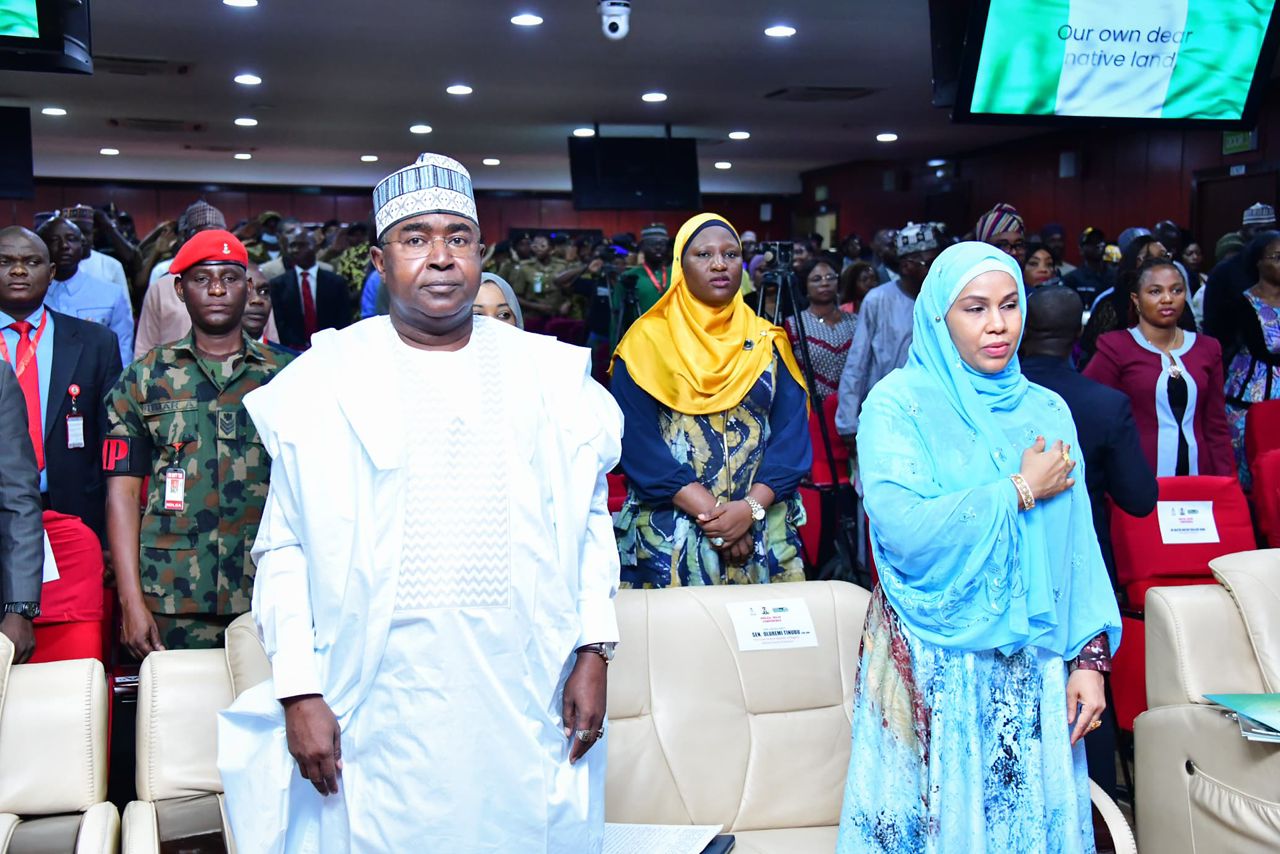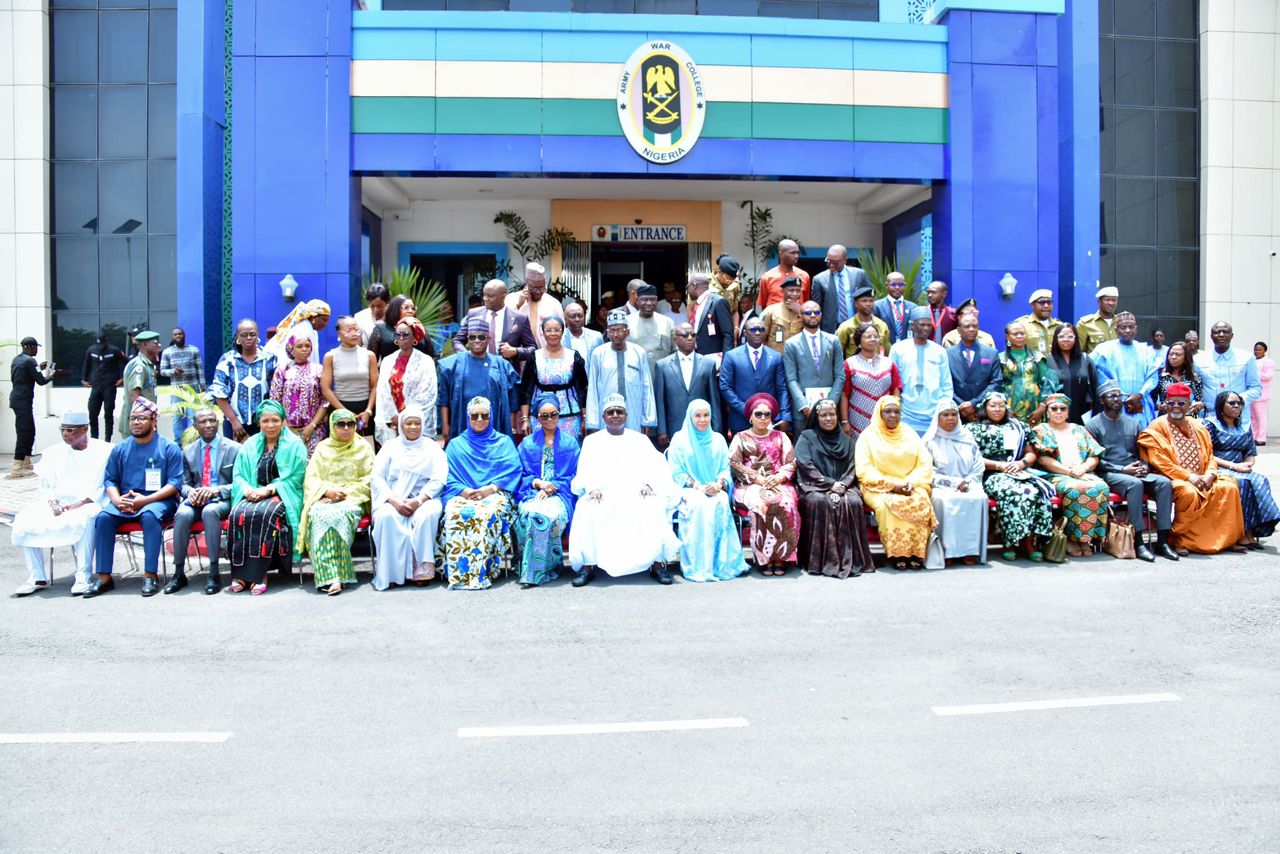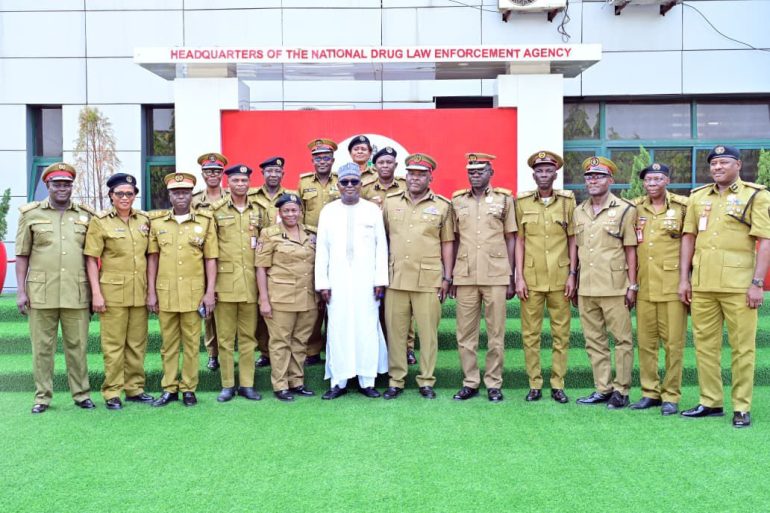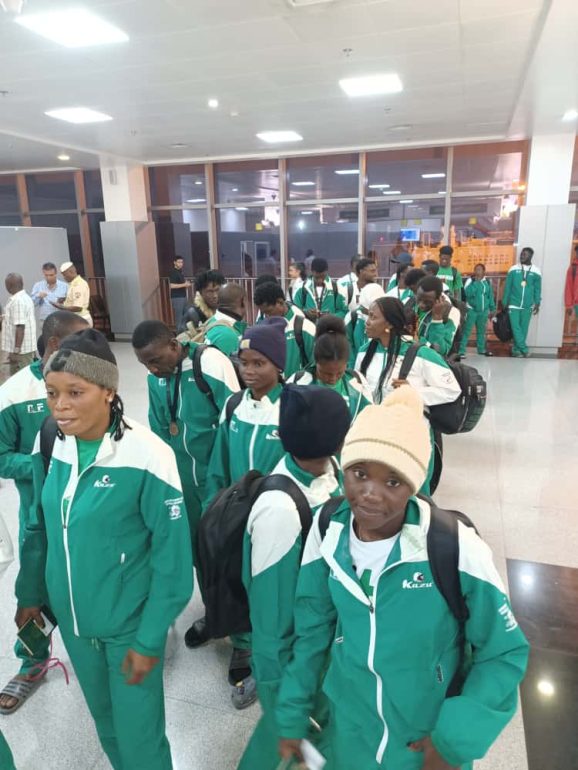Listeners:
Top listeners:
-
play_arrow
104.9FM Best rock music demo
-
play_arrow
Demo Radio Nr.1 For New Music And All The Hits!
-
play_arrow
Demo Radio Techno Top Music Radio
-
 play_arrow
play_arrow
Police Commissioner Launches Weapon and Riot Control Training for FCT Officers Democracy Radio
Adopt Grassroots Drug Control Measures – FG, Stakeholders Tell States
todayMay 6, 2025 9

By Oluwakemi Kindness
State governments have been urged to adopt and implement community-based initiatives aimed at reducing the impact of substance abuse and illicit drug trafficking at the grassroots level, in alignment with the National Drug Control Master Plan (NDCMP).
Wife of the President, Senator Oluremi Tinubu gave the charge at a training workshop organized by NDLEA for the Nigeria Governors Spouses’ Forum in Abuja on Tuesday.
Represented by the wife of the Deputy Senate President, Laila Jibrin Barau, Senator Tinubu in her keynote address commended the NDLEA, and NGSF for the initiative aimed at advancing drug control efforts to the grassroots across the country.
She specifically commended Marwa and his team “for courageously confronting the fight against illicit drug abuse and trafficking in the country.”
“I urge us to utilize the knowledge gathered at this training to develop viable solutions while collaborating with relevant stakeholders, especially the National Drug Law Enforcement Agency, other law enforcement agencies, MDAs, civil society organizations, healthcare providers, educators, and community leaders.
“Let us always bear in mind that as state First Ladies, you owe our people the duty to lead by example, to bear their burden, and share in their pain as we jointly confront drug abuse in our society. I urge us to continue to provide the right direction through prevention initiatives, advocating for those whose voices have been silenced by addiction, providing community interventions to support recovery and reintegrate people into communities after treatment.
“Let us approach the formidable task ahead with humility, doggedness, and commitment to enable us to build communities where our children are protected from harm and empowered to thrive. Together, we can change the narrative, restore dignity to our communities, and ensure a healthier, safer future for all Nigerians.”
Earlier in his welcome address, Marwa noted that the drug scourge obstructs progress and dims prospects in an already beleaguered world. “ 
Marwa said “Our presence at this training testifies to the collective resolve we display in ensuring that we strengthen, secure, and safeguard families and communities”.
Your Excellencies, your roles as mothers, changemakers, and drivers of the State Drug Control Committees (SDCC) place upon you a sacred trust—a responsibility not to be borne lightly. Through your ingenuity, your states may yet emerge as shining examples, immortalised in gold as bastions of hope that defied the tides of darkness.
“The SDCCs remain a potent platform for fostering multisectoral collaboration in the crucial task of drug demand reduction at the state level. I must fervently implore you to ensure the establishment, strengthening, and revitalisation of these Committees across your respective states. Let us always remember that the value of these training events lies not in the richness of their content alone, but in the continued motion and effectiveness of the SDCCs—moving resolutely towards our collective aspiration of a drug-free, resilient Nigeria”, he added.
Also speaking at the workshop, UNODC Country Representative, Cheikh Ousmane Toure, maintained that “If the root of this crisis lies in our neighborhoods, schools, and homes, then the solution must too.
The National Drug Control Master Plan and the WADA initiative remind us of that national framework alone cannot heal fractured communities. Lasting change begins when states and local governments own this fight.”
He reminded the first ladies that their influence transcends politics, adding that “you are the custodian of trust in your states.
The UNODC chief further stated that states must adopt evidence-based programmes to their cultural contexts, and decentralize treatment access.
Moreso, the head of ECOWAS Drug Prevention and Control Division, Dr. Daniel Amankwaah spoke in same light in his goodwill message, urging state governments to invest in prevention and treatment efforts at the state and community-levels.
Experts who served as resource persons during the technical session of the workshop include: Dr. Martins Agwogie, Prof. Akintunde Oyedokun, Dr. Akanidomo Ibanga, Dr. Kunle Adeshina, Dr. Abubakar Salami, Dr. Kunle Adeshina and Dr. Ngozi Madubuike.
Written by: Democracy Radio
Similar posts
Copyright Democracy Radio -2024


